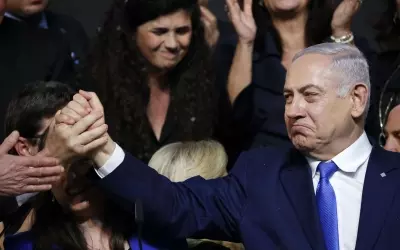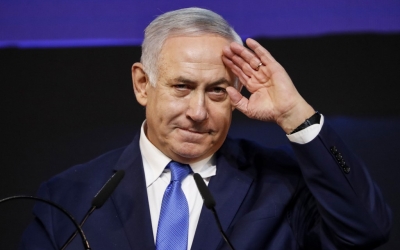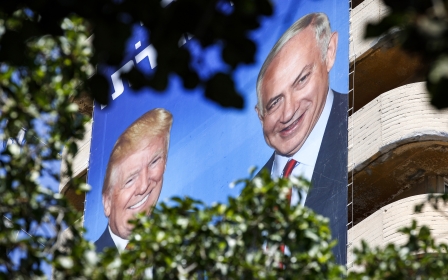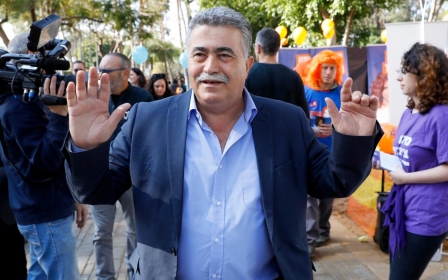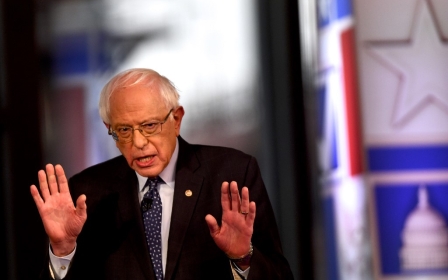Netanyahu renews pledge to annex all West Bank settlements
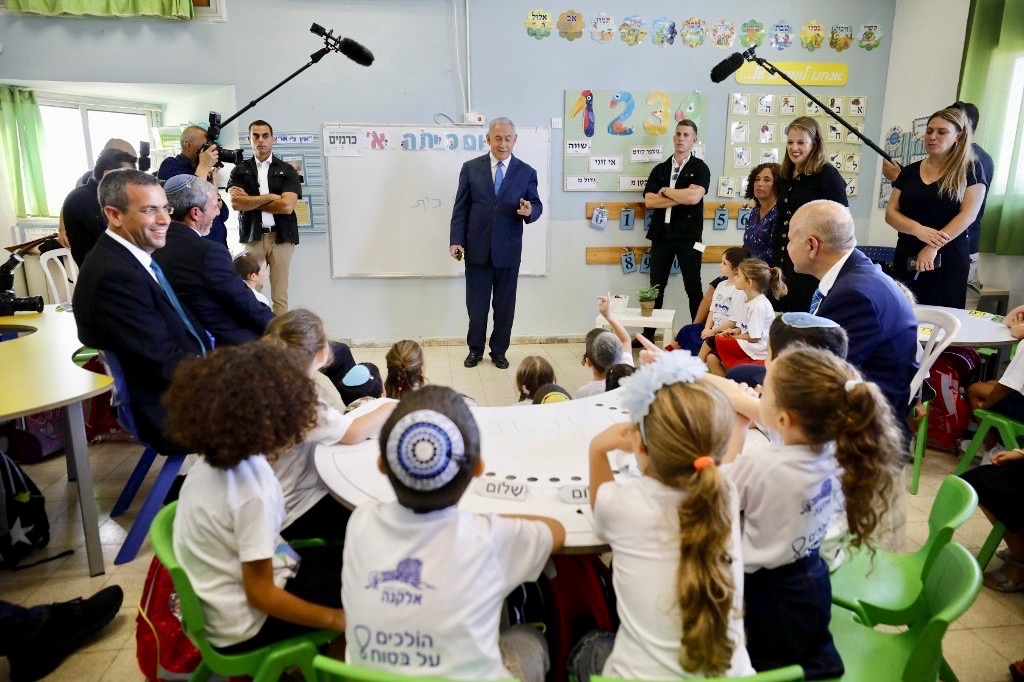
Israeli Prime Minister Benjamin Netanyahu on Sunday renewed his pledge to annex all Jewish settlements in the occupied West Bank as he reached out to right-wing voters ahead of a 17 September election and amid allegations of corruption.
Netanyahu and his Likud party have been working to maximise turnout and wrest votes from other right-wing parties close to the influential settlement movement, AFP said.
“With the help of God we will apply Jewish sovereignty to all communities, as part of the land of Israel, and as part of the state of Israel,” he told an audience at the West Bank settlement of Elkana.
He did not say when he planned to make such a move, Reuters noted.
Settlements are one of the most heated issues in the Israeli-Palestinian conflict. Palestinians have voiced fears Netanyahu may defy international law and move ahead with annexation with possible backing from US President Donald Trump, a close ally.
With the publication of a US peace plan still pending, Trump has already recognised Israel's 1981 annexation of the Golan Heights, land captured from Syria in the 1967 Middle East war.
Netanyahu made the same promise of annexation ahead of the last election in April, but the results left him unable to form a viable governing coalition and he opted for a fresh poll.
Israel occupied the West Bank in the Six-Day War of 1967.
Palestinians and many countries consider the settlements to be illegal under the Geneva Conventions that bar settling on land captured in war. Israel disputes this.
Israeli settlements are viewed as major obstacles to peace because they lie on land the Palestinians see as part of their future state.
Annexation on a large scale could prove to be the death knell for their statehood ambitions.
Saeb Erekat, secretary general of the Palestine Liberation Organisation, called on the international community to take action after Netanyahu's comments.
"Those who claim concern after every Israeli settlement announcement should face reality: Israel's PM is announcing further annexation of occupied territory," he wrote on Twitter.
"Enough impunity: There’s an international responsibility to impose sanctions on Israel after decades of systematic crimes."
Nabil Abu Rudeinah, a spokesman for Palestinian Authority President Mahmoud Abbas, said Netanyahu's announcement was a "continuation of attempts to create an unacceptable fait accompli that will not lead to any peace, security or stability".
The Jerusalem Post said "most realise that what Netanyahu said on Sunday is campaign rhetoric and political posturing, not a declaration of policy that he will implement if he wins the election and forms the next government".
Still, settlers are a major plank of support for Netanyahu's government, which is widely viewed as the most right-wing in Israel's history.
Netanyahu, who according to pollsters is running neck and neck with his main political rival, is seeking to draw support from the nationalist settler community so that he can pull ahead in an election race that he cannot afford to lose, the Washington Post said, noting that with an indictment looming in three criminal cases centring on fraud, bribery and breach of trust, the Israeli leader is determined to hold on to his privileged seat for as long as possible.
More than 400,000 Israelis now live in West Bank settlements, according to Israeli figures, among a Palestinian population put at about 2.9 million by the Palestinian Statistics Bureau.
A further 200,000 Israelis live in settlements in occupied East Jerusalem, over which Israel has already unilaterally imposed sovereignty.
Peace efforts
Israeli-Palestinian peace efforts have been at a standstill since 2014 when a drive for a deal by Barack Obama's administration collapsed.
Trump's administration has swung White House policy firmly in favour of Israel and US ambassador to Israel David Friedman said in June that Israel has the right to annex at least part of the West Bank.
With the election nearing, Netanyahu has again turned to populism to energise supporters.
"This is our land," Netanyahu said in his speech in Elkana. "We will build another Elkana and another Elkana and another Elkana. We will not uproot anyone here."
Still, the longest-serving premier in Israeli history must also deal with the potential corruption charges, which he denies and has labelled as bids by his enemies to force him from office.
Middle East Eye delivers independent and unrivalled coverage and analysis of the Middle East, North Africa and beyond. To learn more about republishing this content and the associated fees, please fill out this form. More about MEE can be found here.


